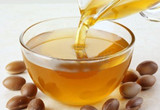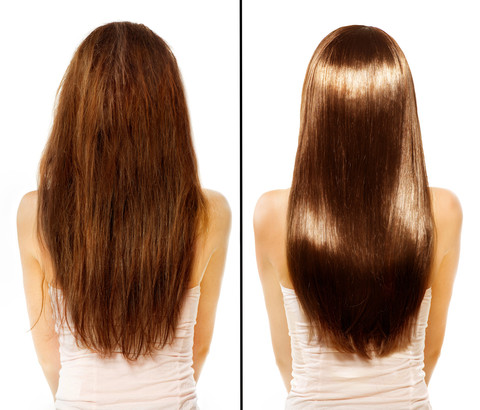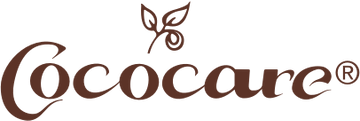Argan Oil Uses and Benefits

There are so many uses for Argan Oil, which is why there are so many products out on the market containing Argan Oil! It seems that Argan Oil is the new “it” ingredient for beauty products and within the last few years it has been showing up everywhere. The amount of products containing Argan Oil are countless and with so much information out there about it, it’s very easy to get products and the uses for it confused. You might find yourself asking questions like, "What is Argan Oil? What do I use it for? What can it do for me? Where do I apply?"
Well, we have spent some time to try to reign in some of the information out there to provide you with a more concise explanation about Moroccan Argan Oil.
What is Argan Oil?
First off, let’s note that ‘Argan Oil’ and ‘Moroccan Argan Oil' are interchangeable (that may help with some of the initial confusion). It is also often referenced as "Liquid Gold." Argan oil is extracted from the fruit of Morocco’s Argan tree and is known for its hydrating and healing capabilities. In Morocco, Argan Oil is actually used to dip bread in or to drizzle on pasta but to the rest of the world, it is becoming one of the most popular ingredients in cosmetics.
Argan Oil is beneficial for both skin and hair; it is now commonly found in body creams, facial masks, and hair products. With this in mind, you want to make sure that you are applying the right product to the corresponding body part (ie Argan Oil Hair Conditioner for your hair, Moroccan Body Oil on your skin). Moroccan Argan Oil is rich in antioxidants and has amazing healing and moisturizing capabilities, mostly due to the Vitamin E and Vitamin A components.
Argan Oil Uses
Argan Oil for Hair
Argan Oil is used to fight against a spectrum of conditions but one of the most common uses of Argan Oil is for hair. In the form of a serum or conditioner, it is used to help combat frizz and dehydration. Moroccan Argan Oil is especially beneficial to apply if you style your hair with heating products (like curling irons and blow dryers), or if you color treat it with harsh chemicals. These things essentially kill your hair over time, but Argan Oil can help combat this damage and revitalize the natural oils of your hair, making it more shiny and healthy. As a hair moisturizer or leave in conditioner, Argan Oil is known to repair split ends, tame fly-aways and leave your hair silky and smooth.

Again, these products come in a few different forms - serum, conditioner, shampoo - so make sure that you are using the correct product for the result you are trying to achieve. Also, applying the right amount also may take some trial and error; you might only need a drop or two to tame your hair a couple times a week, but another person may need 3 drops every day, so don’t get discouraged if you don’t get the perfect results the first time.
Argan Oil for Skin
We’ve already addressed the benefits of applying Argan Oil on your hair, but another great use of it is as an all over moisturizer for your skin. If you are one who likes all natural products and wants to avoid harsh chemicals, Argan Oil is a wonderful option for you. Moroccan Argan Oil will leave your skin naturally refreshed and glowing! And another plus of Argan Oil is that it typically only take a few drops for a noticeable results.
Not only can Argan Oil be used as a simple moisturizer, it can also be used to mix in with some of your favorite products to amplify the nourishing qualities. A few suggestions to incorporate Argan Oil into your current beauty routine is to:
- Mix a few drops with some brown sugar to exfoliate lips
- Add a few drops into your bathtub for a nice body soak
- Put a few drops in your favorite lotion (be careful about mixing smells)
- Add a drop or two into your moisturizer or favorite skin toner
- Blend a few drops into your aftershave lotion to soothe razor bumps and burns
 Argan Oil for Stretch Marks
Argan Oil for Stretch Marks
With cocoa butter being the front-runner for battling stretch marks, Argan Oil is often overlooked. Moroccan Argan Oil can help prevent the breakdown of collagen and elastin, affecting the elasticity of the skin. This moisturizing solution can help in preventing stretch marks and also in fading them.
Argan Oil for Acne
Argan Oil can even be used to help improve mild cases of acne. Studies have shown that some of the fatty acids found in Moroccan Argan Oil help reduce inflammation and promote healthy levels of sebum production. Your sebum glands are what manages the natural oils on your skin. When you have just the right amount of sebum, it protects your skin; when your skin has too much it’s prone to cause acne, and if your skin has too little sebum you could end up with dry and cracked skin.
Fun fact: Tea tree oil is another natural way to fight acne and compliments the benefits of Argan Oil as well!
 With so many Argan Oil products on the market, it’s hard to choose what would be best for you. Remember that the results can vary for every user so you may have to do a little trial and error to learn what works best for you. For instance, one person could find that Argan Oil irritates their skin but another user could have glowing skin from using it. It just depends; every skin type and hair texture is different so it makes sense that particular Moroccan Argan Oil products would affect users differently. If you are interested in trying something new with Argan Oil, try a simple product like Argan Hair Serum or Moroccan Argan Body Oil or. You can shop all of Cococare’s argan oil products here.
With so many Argan Oil products on the market, it’s hard to choose what would be best for you. Remember that the results can vary for every user so you may have to do a little trial and error to learn what works best for you. For instance, one person could find that Argan Oil irritates their skin but another user could have glowing skin from using it. It just depends; every skin type and hair texture is different so it makes sense that particular Moroccan Argan Oil products would affect users differently. If you are interested in trying something new with Argan Oil, try a simple product like Argan Hair Serum or Moroccan Argan Body Oil or. You can shop all of Cococare’s argan oil products here.
Tweet us @cococare or comment below to tell us what your favorite use of argan oil is. We love finding new ways to use it!
